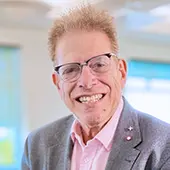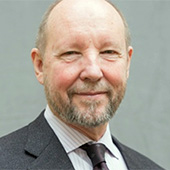Yidan Prize
Founded in 2016 by Dr Charles Chen Yidan, a core founder of Tencent, the Yidan Prize has a mission of creating a better world through education. It consists of two awards, the Yidan Prize for Education Research and the Yidan Prize for Education Development. Yidan Prize Laureates each receives a gold medal and a total sum of HK$30 million (around US$3.9 million), half of which is a cash prize while the other half is a project fund. To ensure transparency and sustainability, the prize is managed by the Yidan Prize Foundation and governed by an independent trust with an endowment of HK$2.5 billion (around US$323 million). Through a series of initiatives, the prize aims to establish a platform for the global community to engage in conversation around education and to play a role in education philanthropy.
Since the establishment of the Prize, the Yidan Foundation has sponsored conferences at universities around the world. Learn about the 2019 Yidan Prize Conference.
Uri Wilensky (2025)
School of Education and Social Policy
Uri Wilensky is an early pioneer of advocating for the power of computer modeling and simulations. In 1999, he developed the free, open-source tool NetLogo to facilitate an understanding of complex systems problems such as climate change, pandemics and economic instability. The platform allows users to explore and build models that illustrate how individual agents can interact with each other to create large-scale patterns. The same tool can be used by children and researchers alike, providing a universal language to approach complex issues in different educational and academic settings.
Larry V. Hedges (2018)
Weinberg College of Arts and Sciences
Larry Hedges is chairman of the department of statistics and a professor of education and social policy, psychology and medical social science. Among the most influential applied statisticians in the world, Hedges’ work allows policymakers, educators and the general public to see the evidence for “what works” in the field of education, and makes it possible to take a scientific approach to improving education for future generations.

